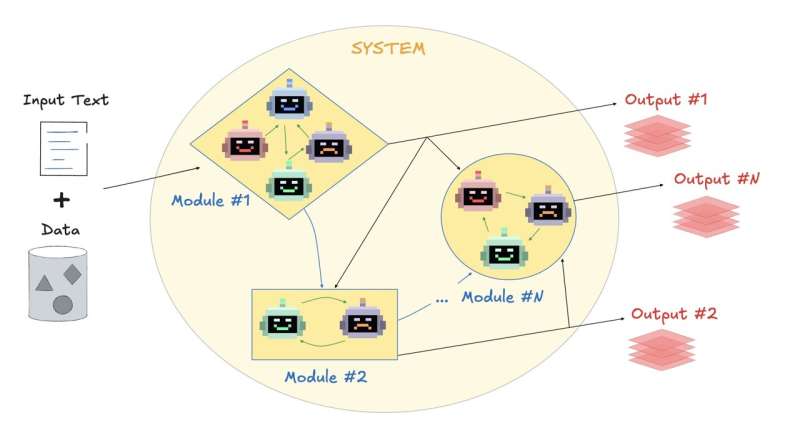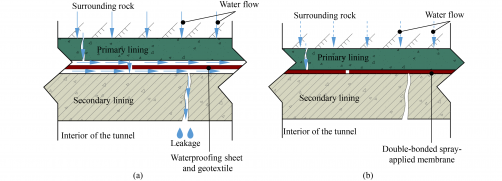Researchers have launched an innovative AI-powered tool named Denario, designed to streamline and enhance the scientific research process. This groundbreaking assistant aids scientists in formulating research questions, analyzing data, and drafting scientific documents, potentially transforming the way research is conducted across various disciplines.
Developed collaboratively by teams from the University of Cambridge, the Flatiron Institute, and the Autonomous University of Barcelona, Denario utilizes advanced large language models to facilitate tasks ranging from hypothesis generation to manuscript preparation. The creators anticipate that this tool will not only accelerate the research timeline but also encourage interdisciplinary collaboration among scientists.
While existing AI tools, such as ChatGPT, have shown effectiveness in specific tasks like data visualization and abstract writing, they often focus on one step of the research process at a time. In contrast, Denario operates as a comprehensive assistant capable of synthesizing existing literature, analyzing data, and generating manuscripts. According to a paper published on November 4, 2025, on the arXiv preprint server, the researchers believe that Denario will broaden the scope of scientific exploration.
Francisco Villaescusa-Navarro, a leading developer from the Flatiron Institute, emphasized the tool’s potential to inspire novel ideas and methodologies. “Sometimes the most interesting thing is the idea, because maybe it’s a new idea that hasn’t been explored,” he stated. This capability to generate fresh perspectives is seen as a significant advantage in scientific inquiry.
Despite its potential, the developers caution that Denario is not a substitute for human researchers. Current limitations mean that only about 10% of its outputs yield insightful findings, and there are instances where the system has generated fabricated data. Therefore, human oversight remains a critical component of the research process when using Denario.
The development team, led by Dr. Boris Bolliet from the University of Cambridge, alongside Pablo Villanueva Domingo and Villaescusa-Navarro, included experts from diverse fields such as astrophysics, biology, chemistry, and neuroscience. They capitalized on recent advancements in large language models, including Google Gemini and Anthropic’s Claude, to create a tool that can perform across all stages of research.
Denario’s architecture comprises various AI “agents,” each tailored for specific tasks. Users can operate the tool in a modular manner, selecting components that suit their research needs, whether that involves coding, exploring ideas, or summarizing findings. Bolliet noted, “We designed Denario with a modular architecture so that users can choose which of its components best fit their research.”
To utilize Denario effectively, scientists upload a dataset accompanied by a brief description of their research objectives. The initial agents generate and refine ideas for the dataset, proposing potential research projects. Subsequent agents then conduct literature reviews to ensure the novelty of the ideas. This systematic approach continues as agents analyze the data and generate code, culminating in the production and revision of research summaries.
The tool has undergone extensive testing, with hundreds of applications across various scientific disciplines, including chemistry and neuroscience. Although most outputs were deemed unsuitable in expert reviews, approximately 10% produced intriguing questions or findings. The interdisciplinary nature of Denario is particularly promising, as it can draw connections between fields that researchers might not typically explore.
Researchers hope that Denario will reclaim valuable time for scientists, allowing them to focus on creative thinking rather than routine tasks. “I hope that Denario will help accelerate science by providing researchers with tools that allow them to spend less time on menial tasks,” said Bolliet.
Looking forward, the development team aims to enhance Denario’s efficiency and improve the quality of its outputs, including refining its ability to differentiate between high- and low-quality results. Nevertheless, challenges remain, such as ensuring that the write-ups effectively communicate uncertainty in results and accurately reference previous studies.
There are also ethical considerations surrounding the use of AI in scientific research. Concerns about AI “hallucinations,” or the generation of misleading information, have prompted the team to introduce strict instructions to prevent Denario from producing fabricated data. The researchers advocate for open discussions about the best practices in utilizing Denario and similar tools while addressing potential misuse.
The collaboration between academia and industry has been vital to the realization of Denario. The project exemplifies the exciting possibilities that AI can bring to scientific discovery and the ongoing evolution of research methodologies.







